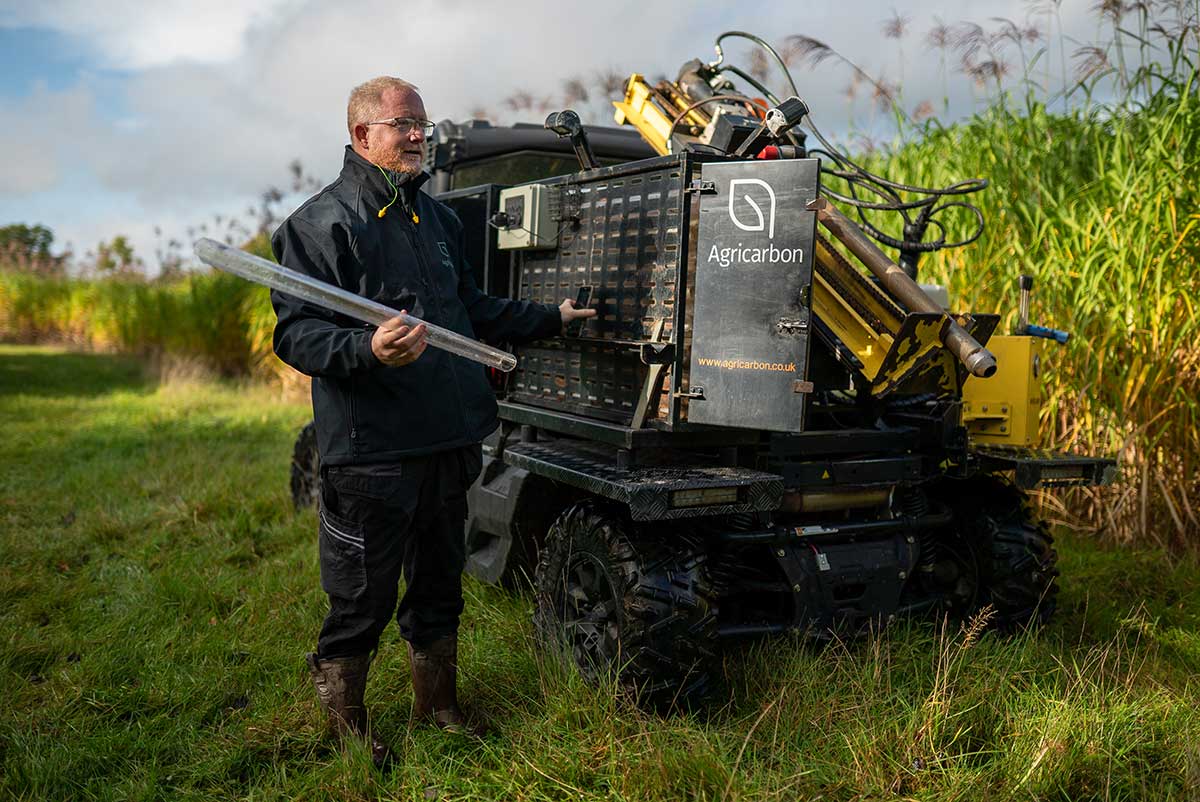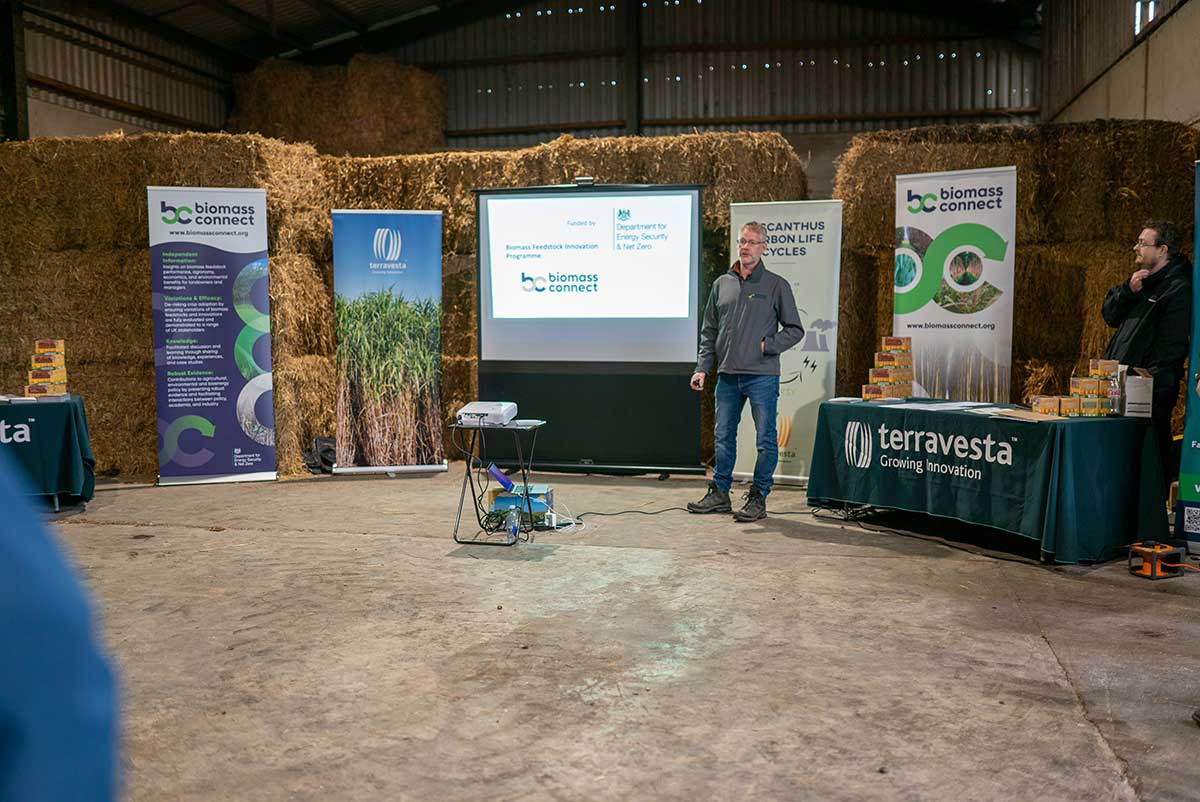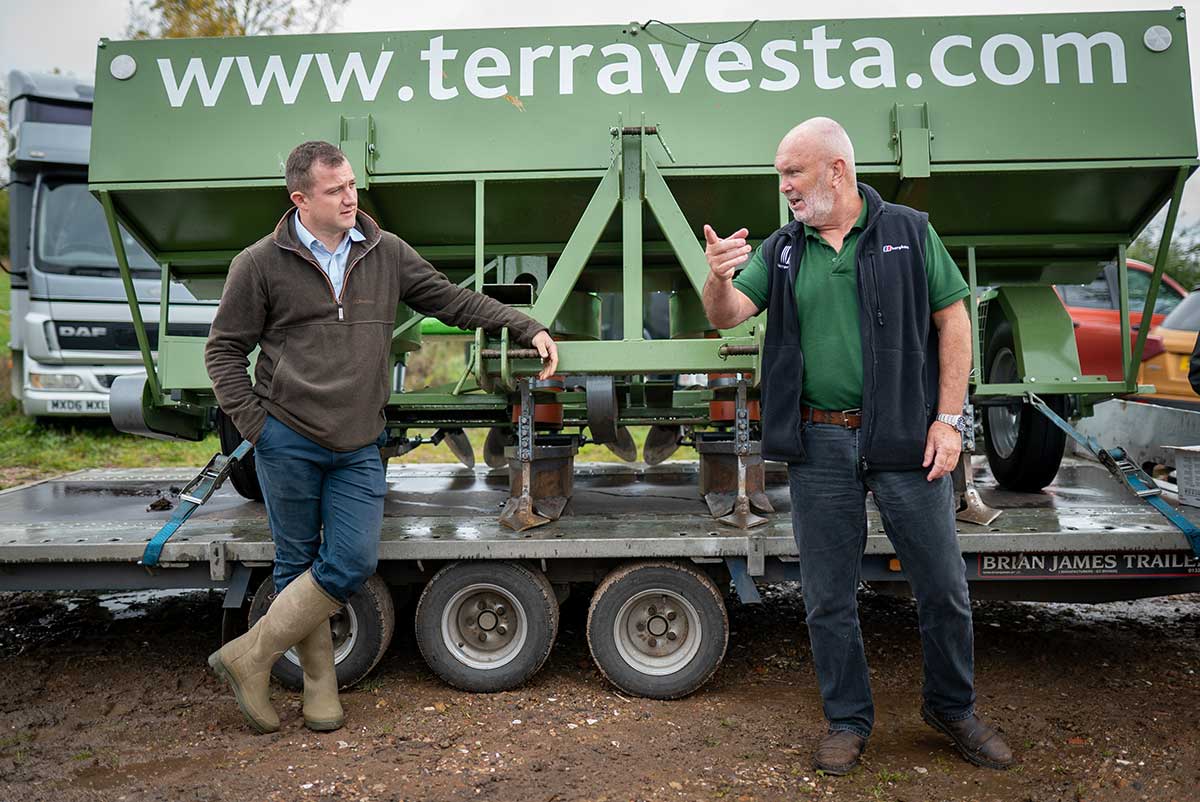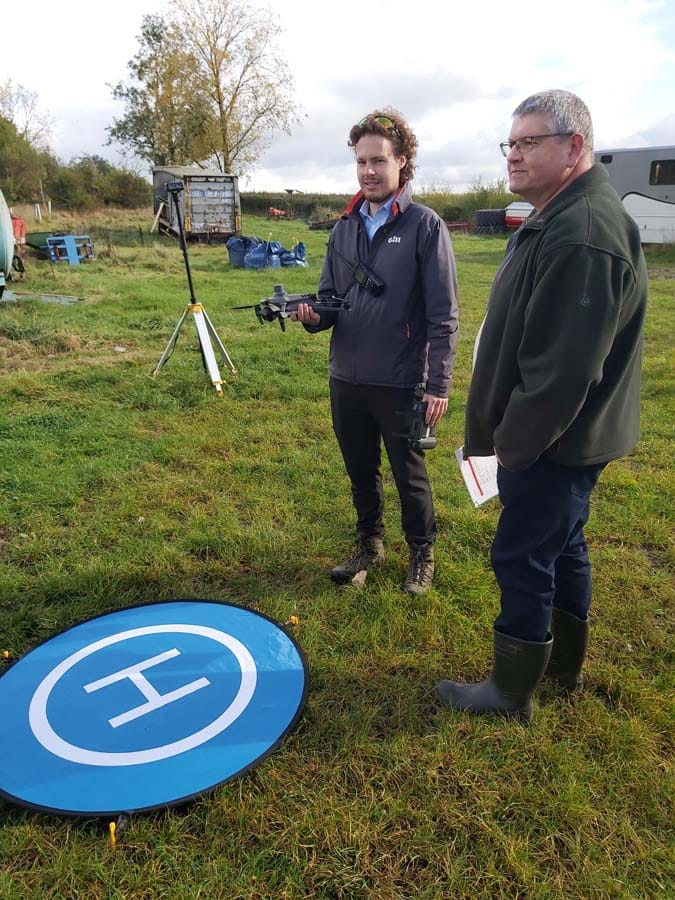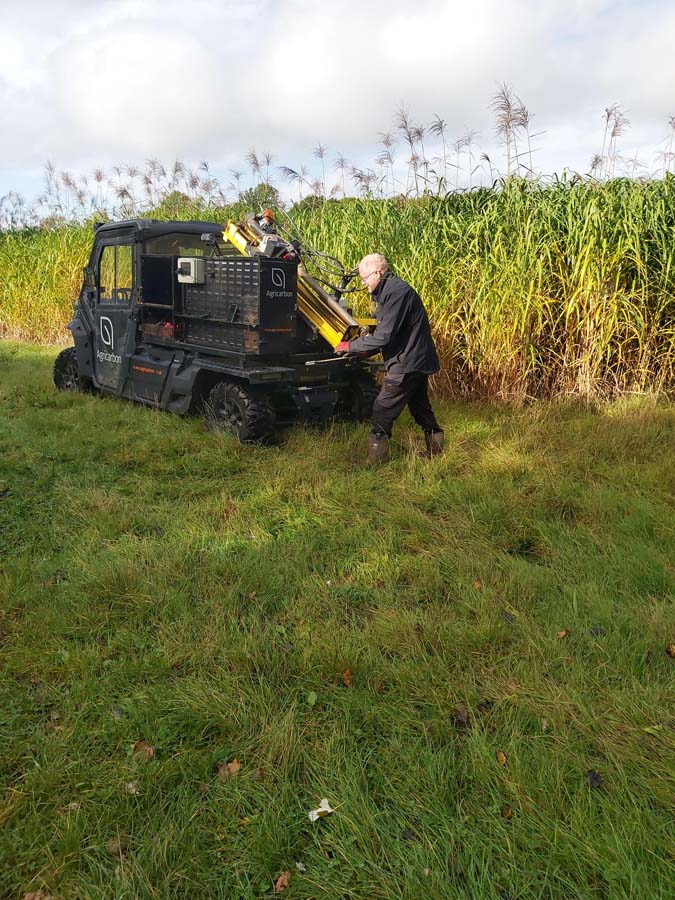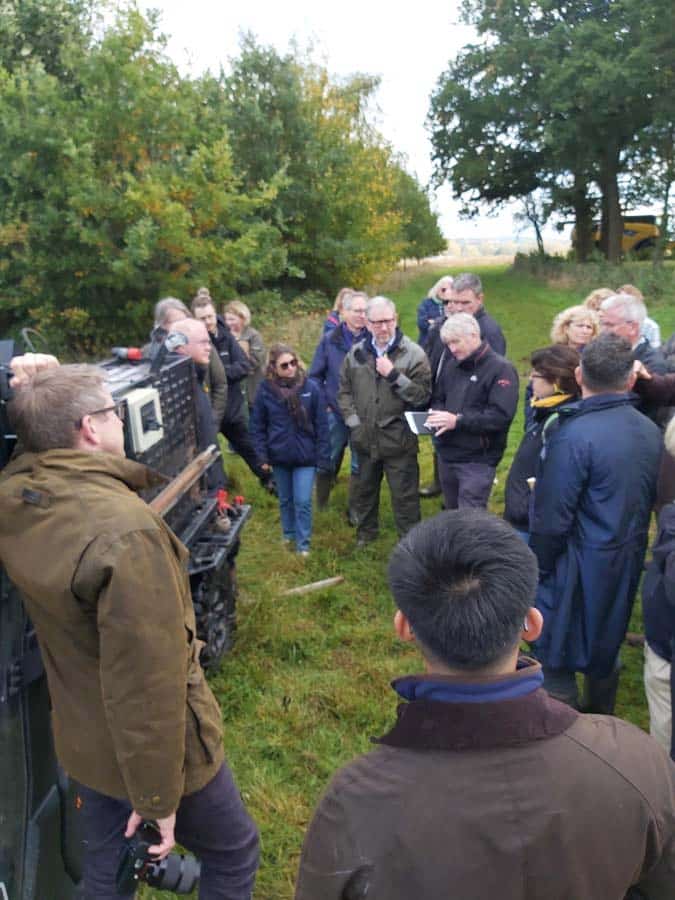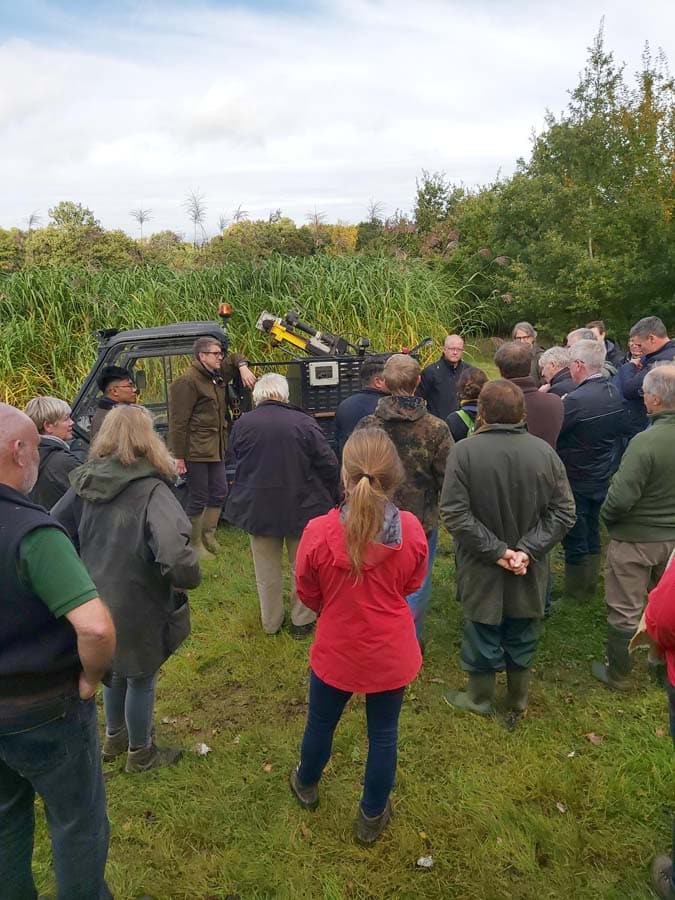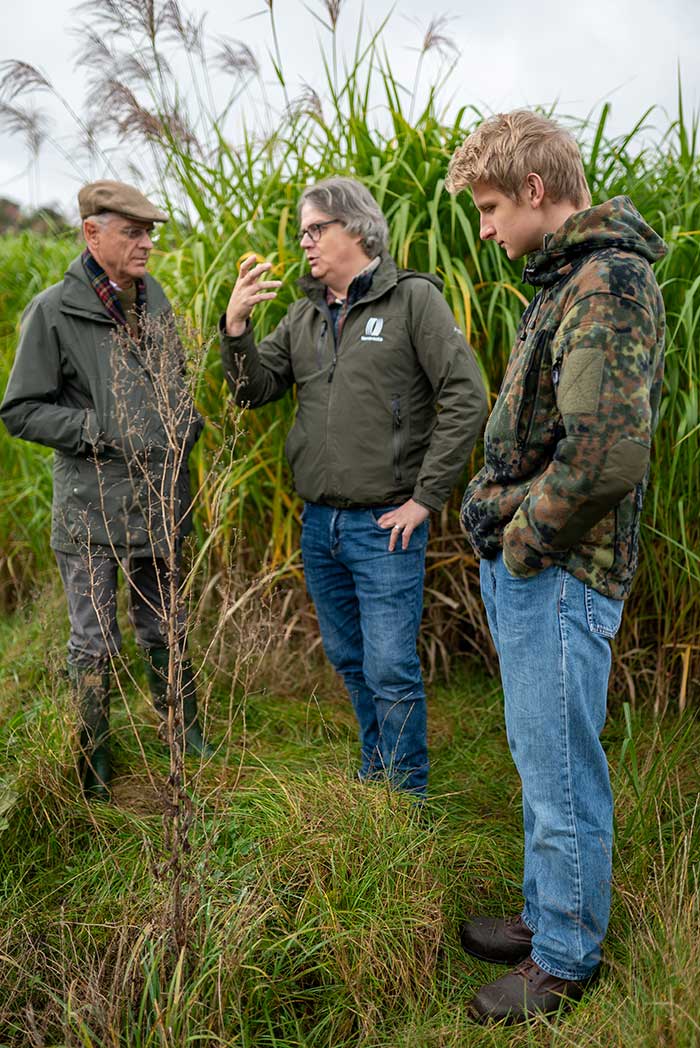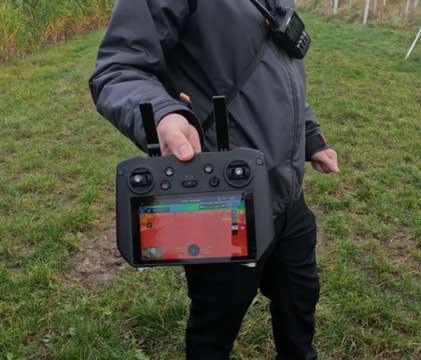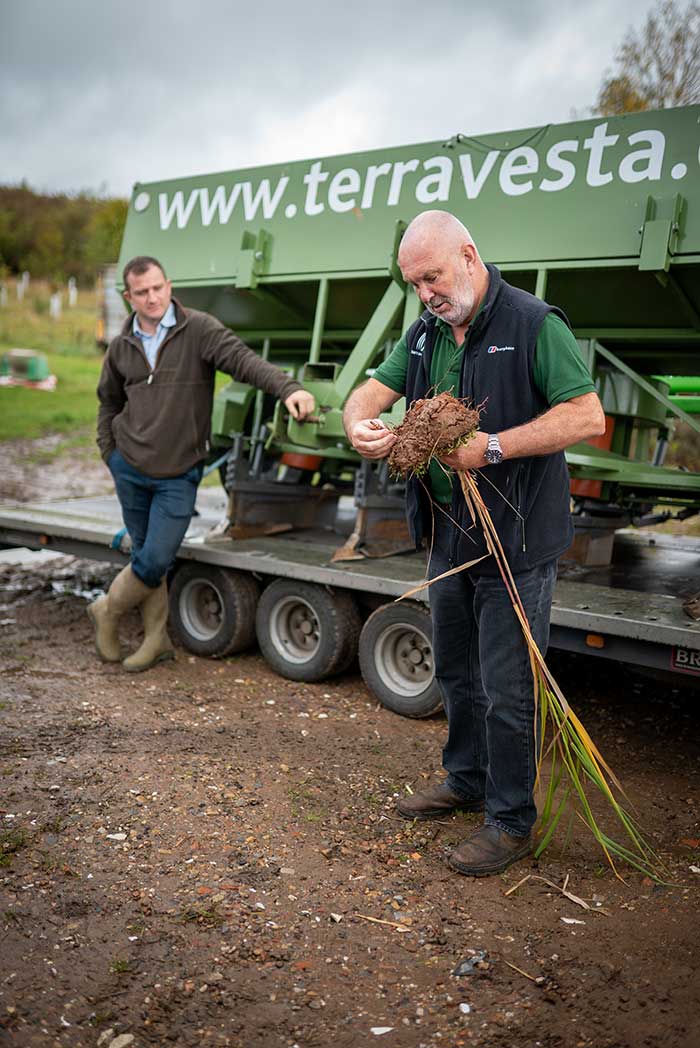Biomass Connect, in collaboration with Terravesta, successfully hosted a technical day on the establishment, growth, and diversification potential of Miscanthus. The event, held on October 26th, took place at Grovefield Farm, near Warwick, and was graciously hosted by the enterprising farmer Harry Clark. The event saw approximately 40 land managers and advisors in attendance, all eager to explore the multifaceted potential of Miscanthus.
Miscanthus is a versatile crop with the capacity to generate income through biomass production for energy, as livestock bedding, and as a valuable habitat and carbon storage resource. The event kicked off with an introduction by Mark Needham from the Biomass Connect project, funded by DESNZ. He highlighted the project’s mission to provide independent and robust information to those interested in cultivating biomass crops, aiding them in making informed decisions as the biomass industry continues to evolve. Mark emphasised the pivotal role that Miscanthus and other biomass crops can play in providing carbon-neutral and carbon-negative energy to the UK.
Following Mark Needham’s presentation, Mark Coleman of Terravesta, a company that specialises in growing and marketing Miscanthus, provided an engaging overview of the crop’s lifecycle and its business potential. Michael Squance, Terravesta’s Science and Technology Director, emphasised the critical importance of achieving the optimal establishment of the crop for long-term success. Michael underlined the significance of ongoing research through the OMENZ project (Optimizing Miscanthus Establishment Net Zero), which focuses on enhancing the entire Miscanthus establishment process, including planting material, field preparation, innovative agri-tech, new planting techniques, and cutting-edge technologies for field monitoring.
After the informative presentations, the attendees embarked on a farm walk led by Harry Clark, the host, and Phil Greenway of Terravesta. They explained the process of planting rhizome material, emphasising the importance of a weed and compaction-free seedbed. While acknowledging that it requires labour and precision, Phil noted that, if executed correctly, the crop could be productive for up to 15 years. Harry Clark shared his motivation for growing Miscanthus, highlighting how certain fields on his farm proved to be unprofitable for conventional cereal crops due to the high input required.
As part of the OMENZ project, Cranfield University has been developing Artificial Intelligence (AI) and drone systems to monitor crop performance. During the farm walk, Cranfield researchers showcased their drone technology, providing images of crop cover and photosynthesis rates. This technology not only benefits above-ground biomass production but also improves soil structure and captures and stores between 5 and 12 tons of carbon throughout the crop’s life cycle.
Agricarbon also demonstrated their ATV-mounted soil sampling system during the event, which was used to collect soil samples for nutrient status and soil carbon at various depths. The samples were GPS-tagged to ensure precise data collection. Additionally, they sampled within the crop itself, with the aim of automating data collection for rhizome development.
Discussions among the attendees included concerns about Miscanthus’s winter/early spring harvest period and its ability to withstand flooding and extended periods of submersion. Miscanthus grower and Terravesta Chairman, William Cracroft Eley, shared his experience of how the crop on his farm survived flooding during the autumn and winter, in contrast to his neighbours’ cereal crops. Mark Coleman acknowledged weather concerns regarding harvest time but pointed out that last season’s harvest was conducted in extreme wet weather, and over 98% of bales met the required moisture standards required for energy generation.
Mark Needham of Biomass Connect expressed his satisfaction with the event’s turnout, noting that visitors engaged in constructive discussions, drawing from the speakers’ expertise and the experiences of other growers. There was a strong interest in the end uses and economics of the crop, and the event proved to be a valuable source of information and networking for all involved.
Biomass Connect and the Terravesta research project, OMENZ, are both funded by the Biomass Feedstock Innovation Programme, a part of the Net Zero Innovation Portfolio under the Department for Energy Security and Net Zero.
